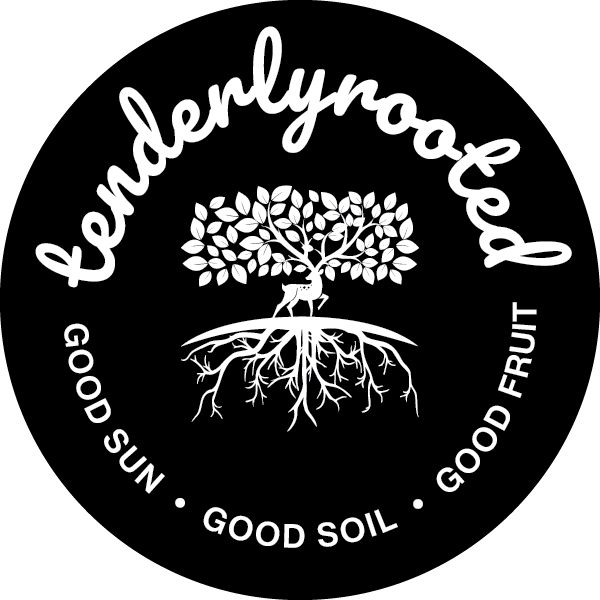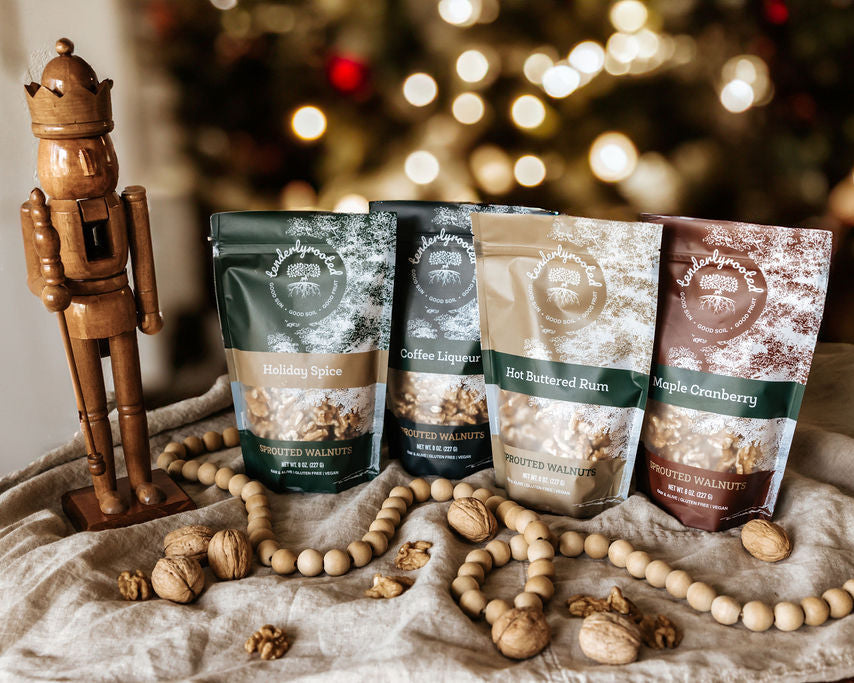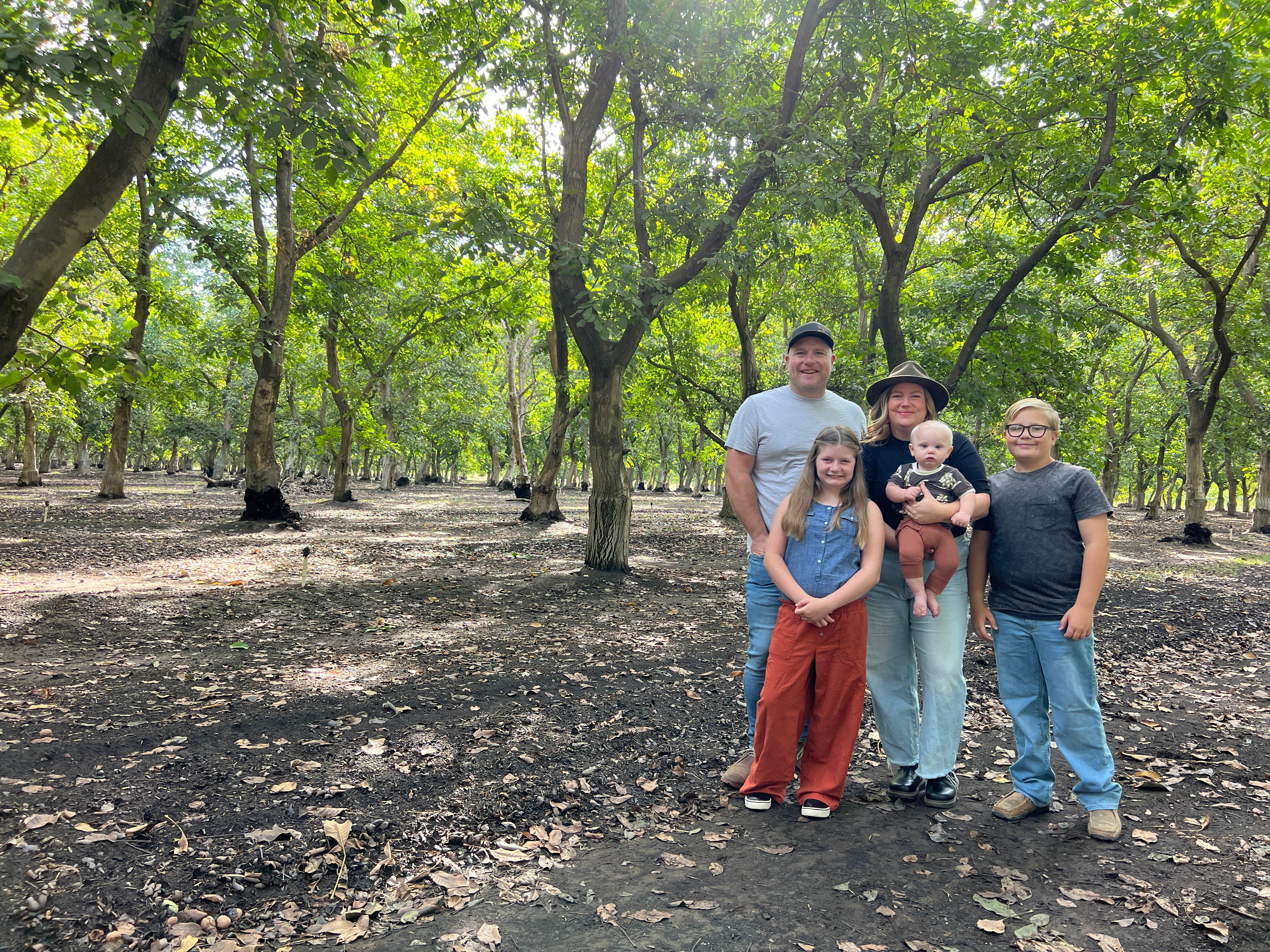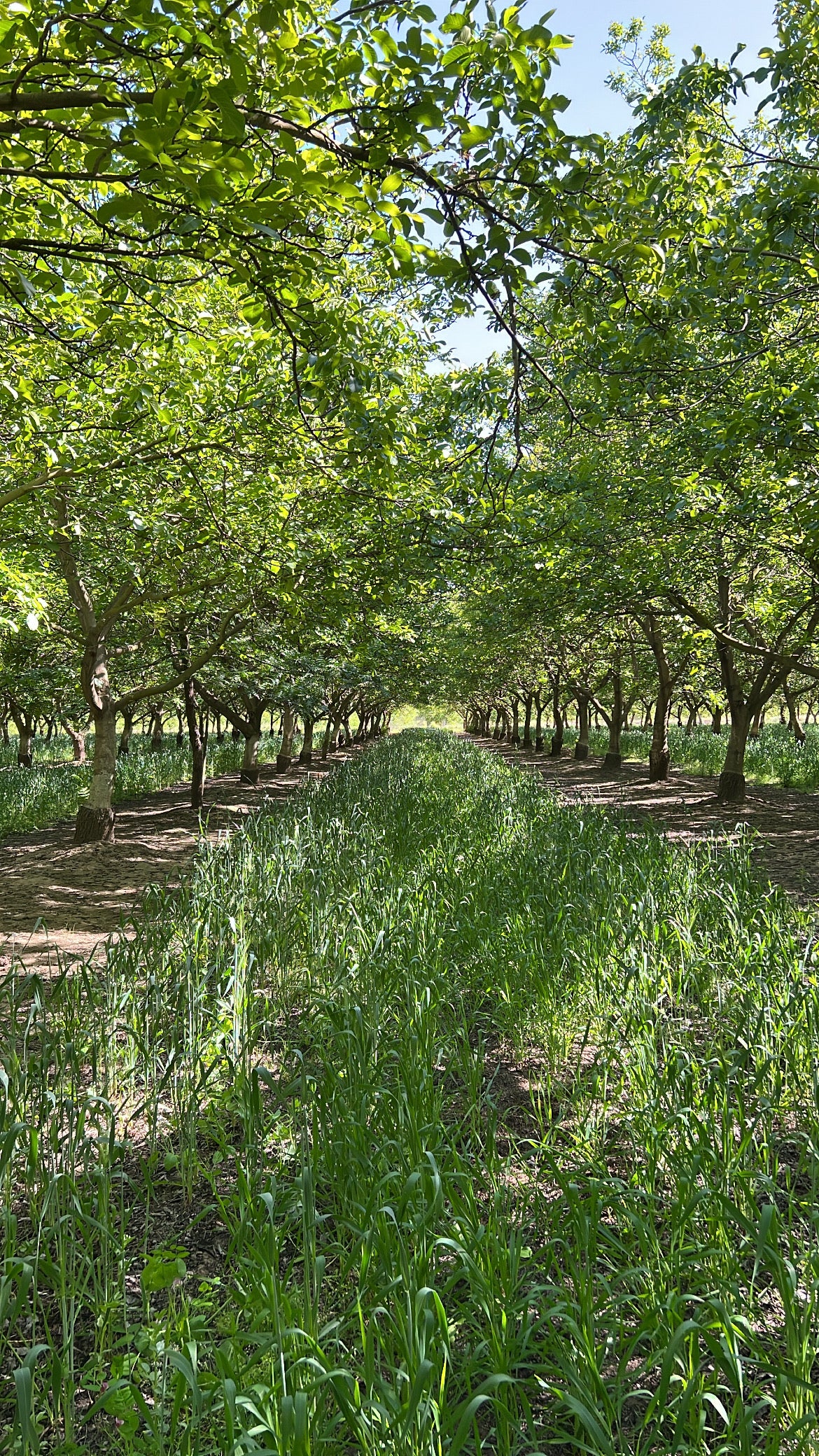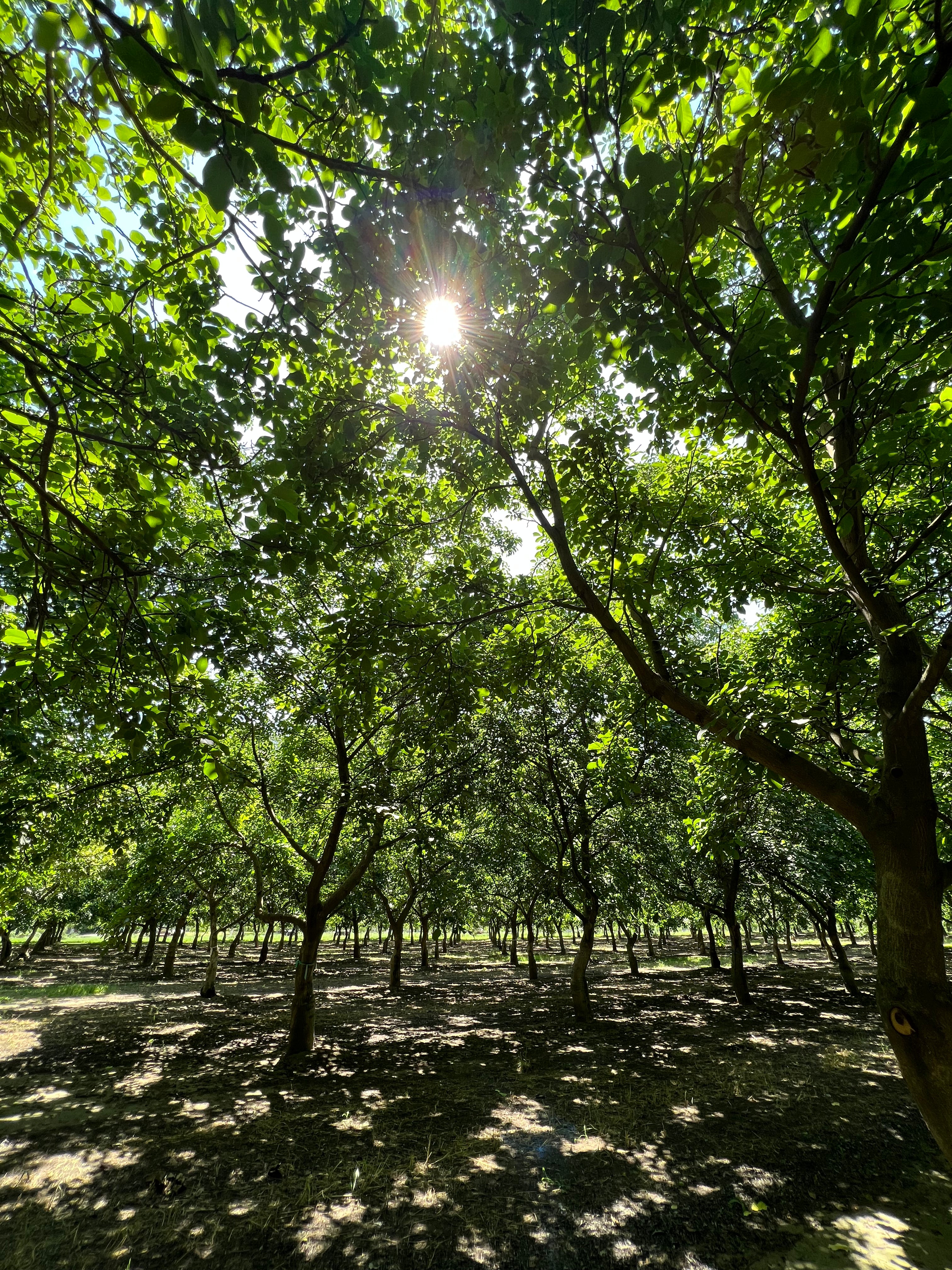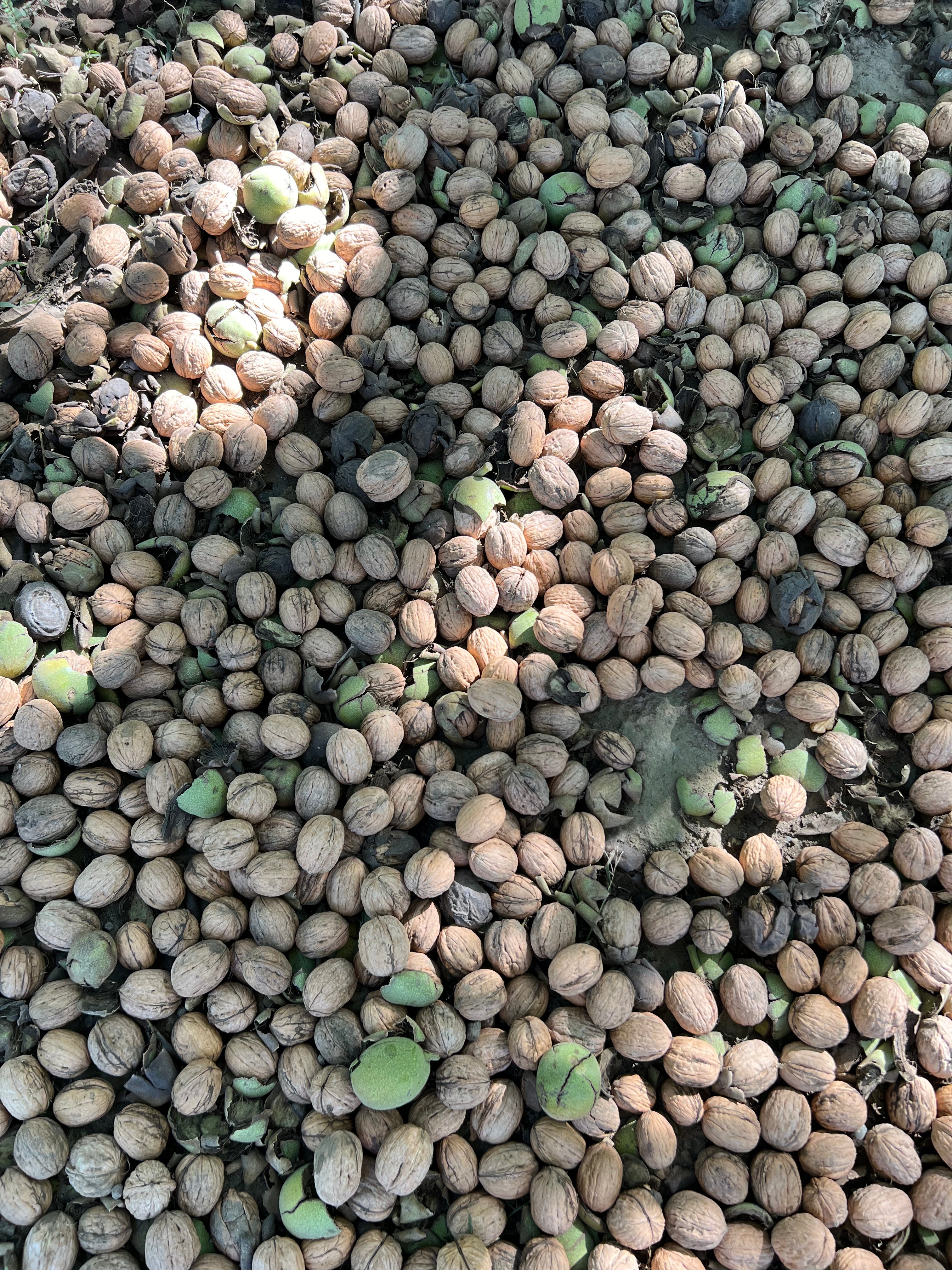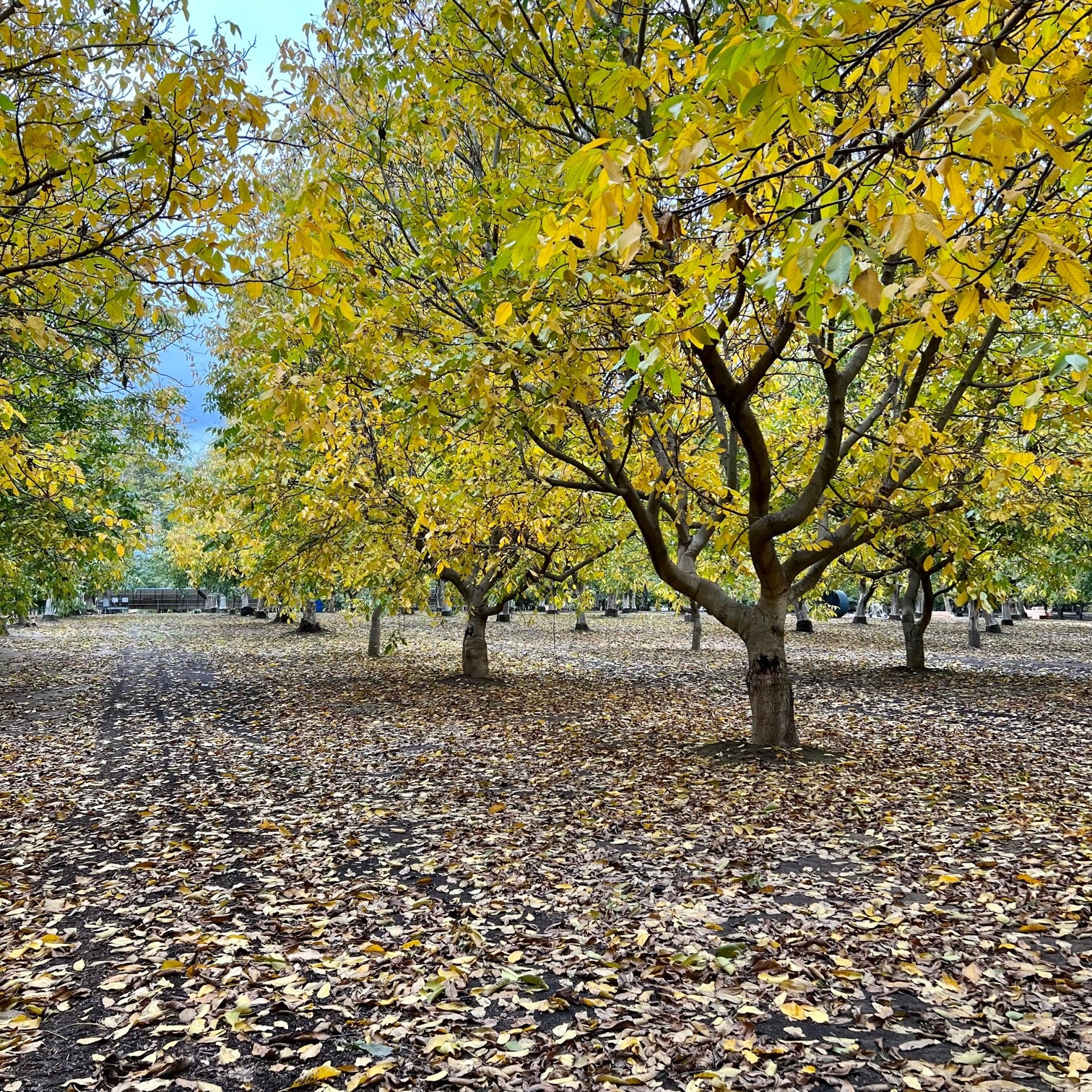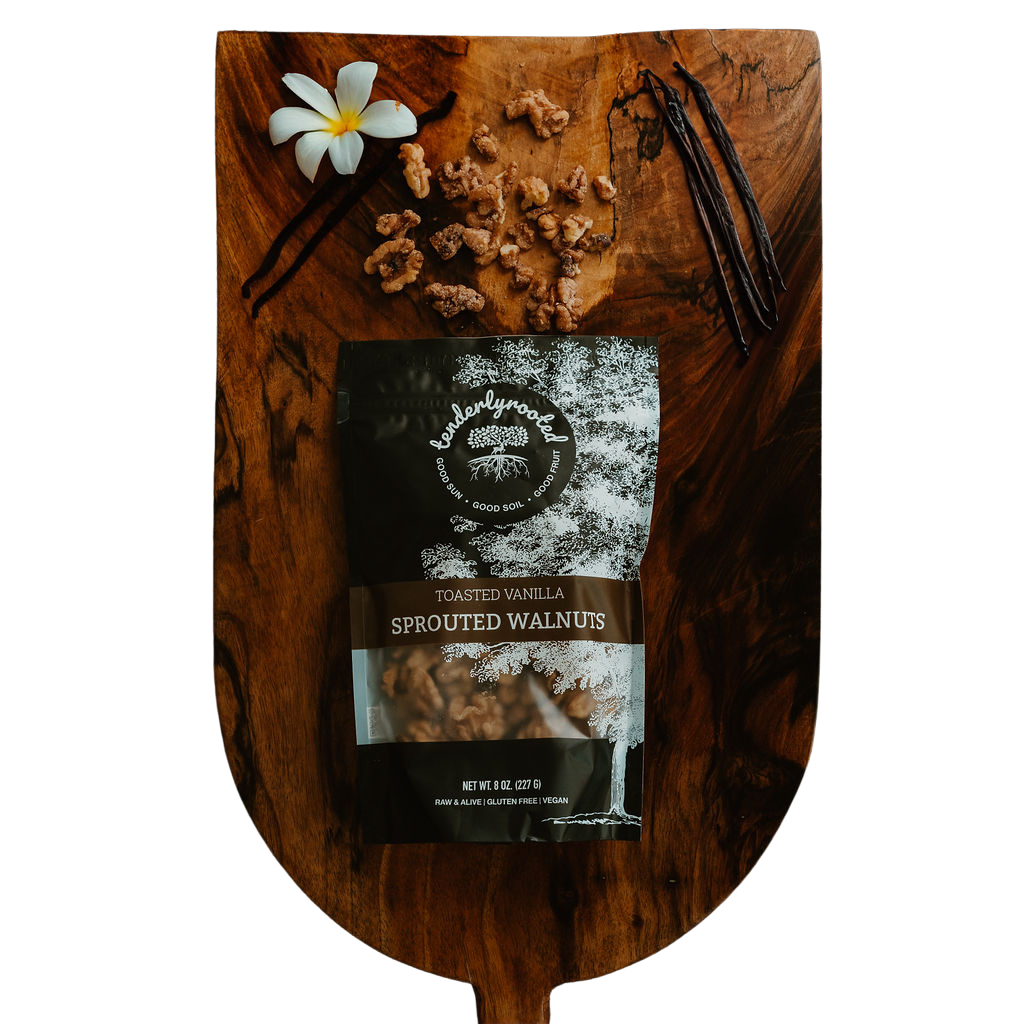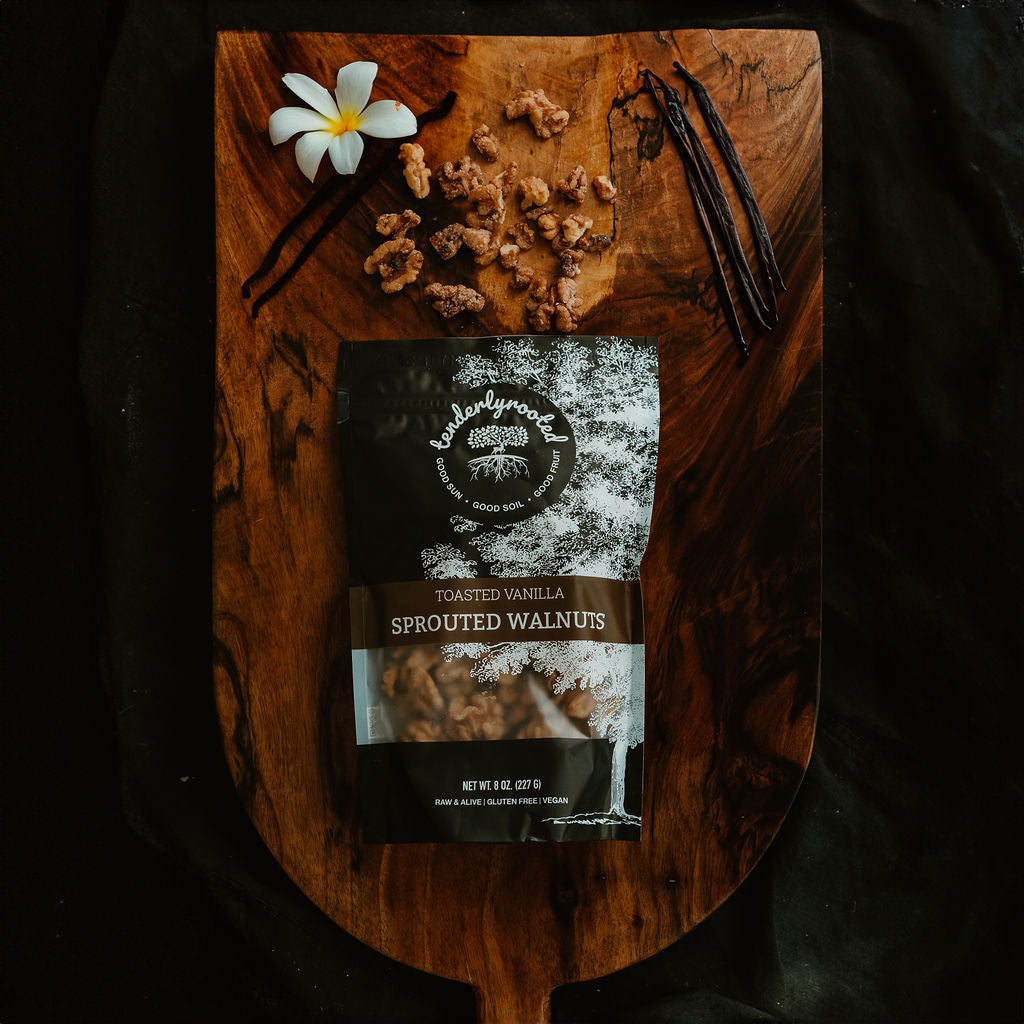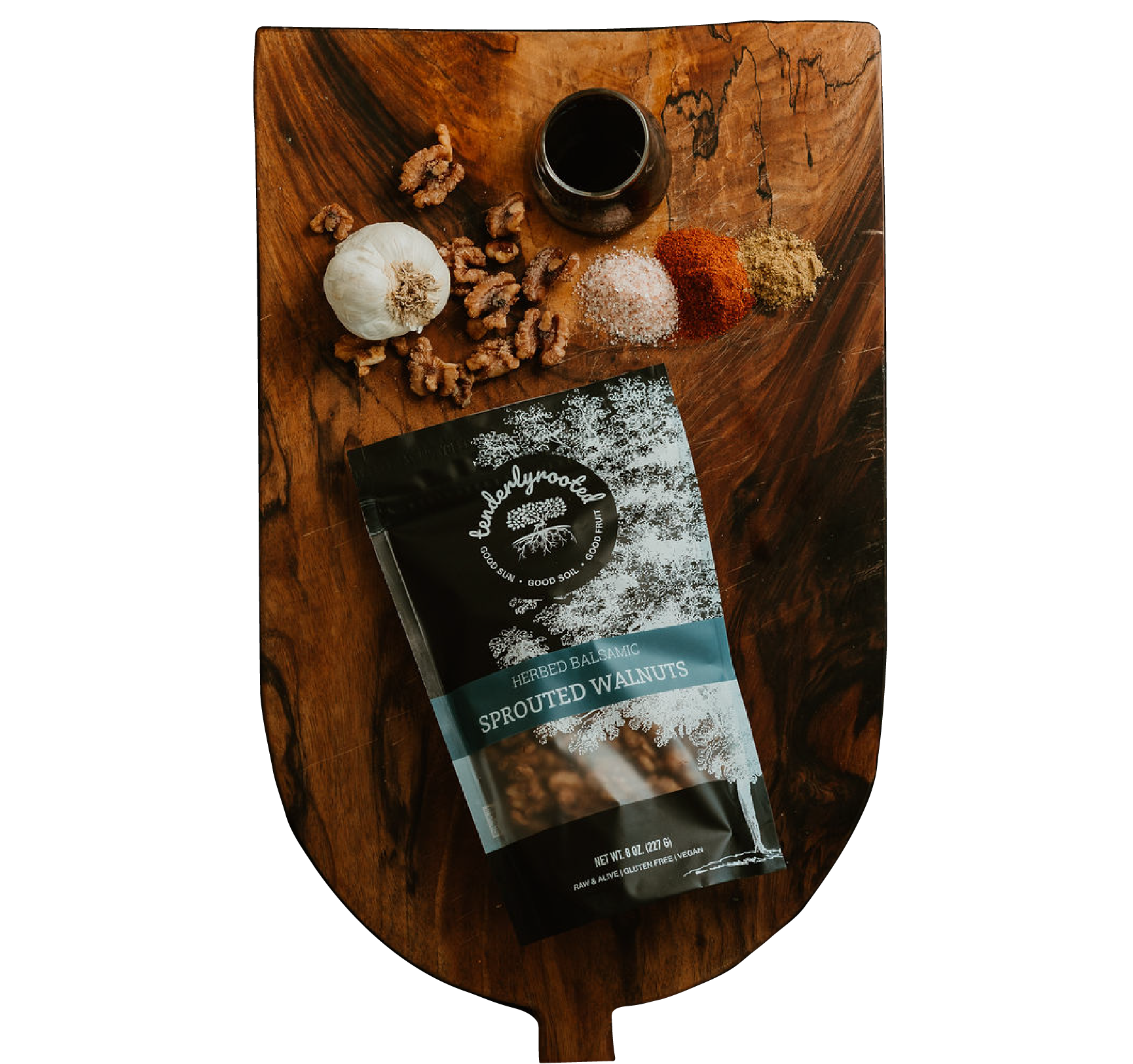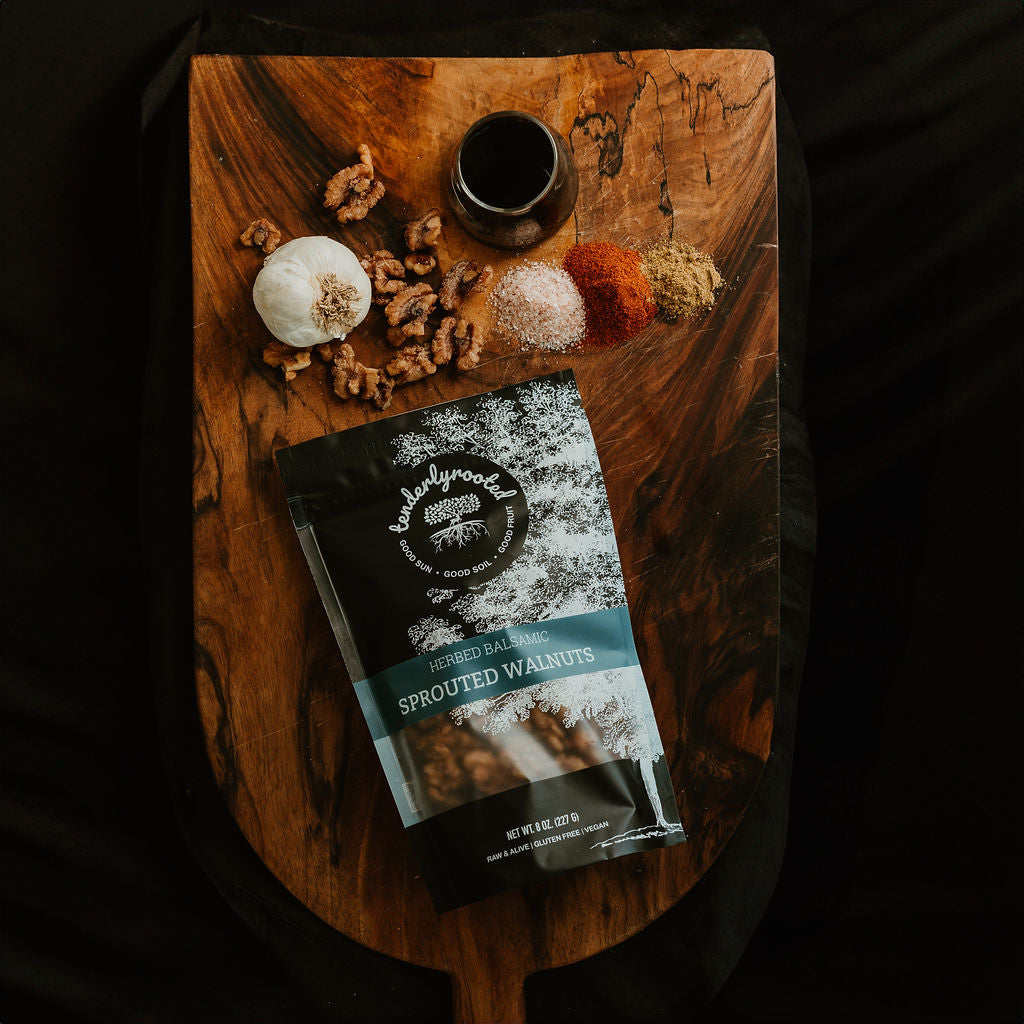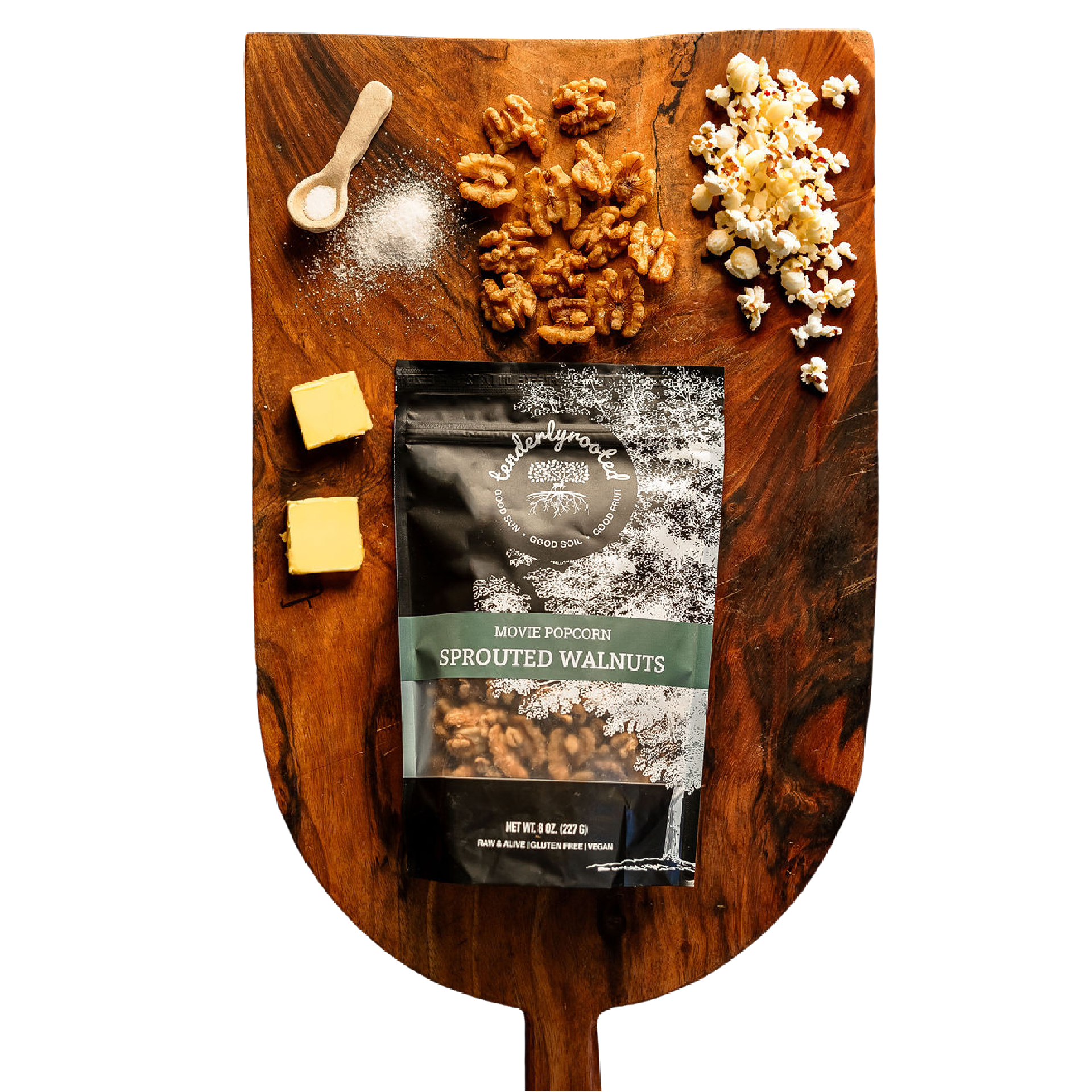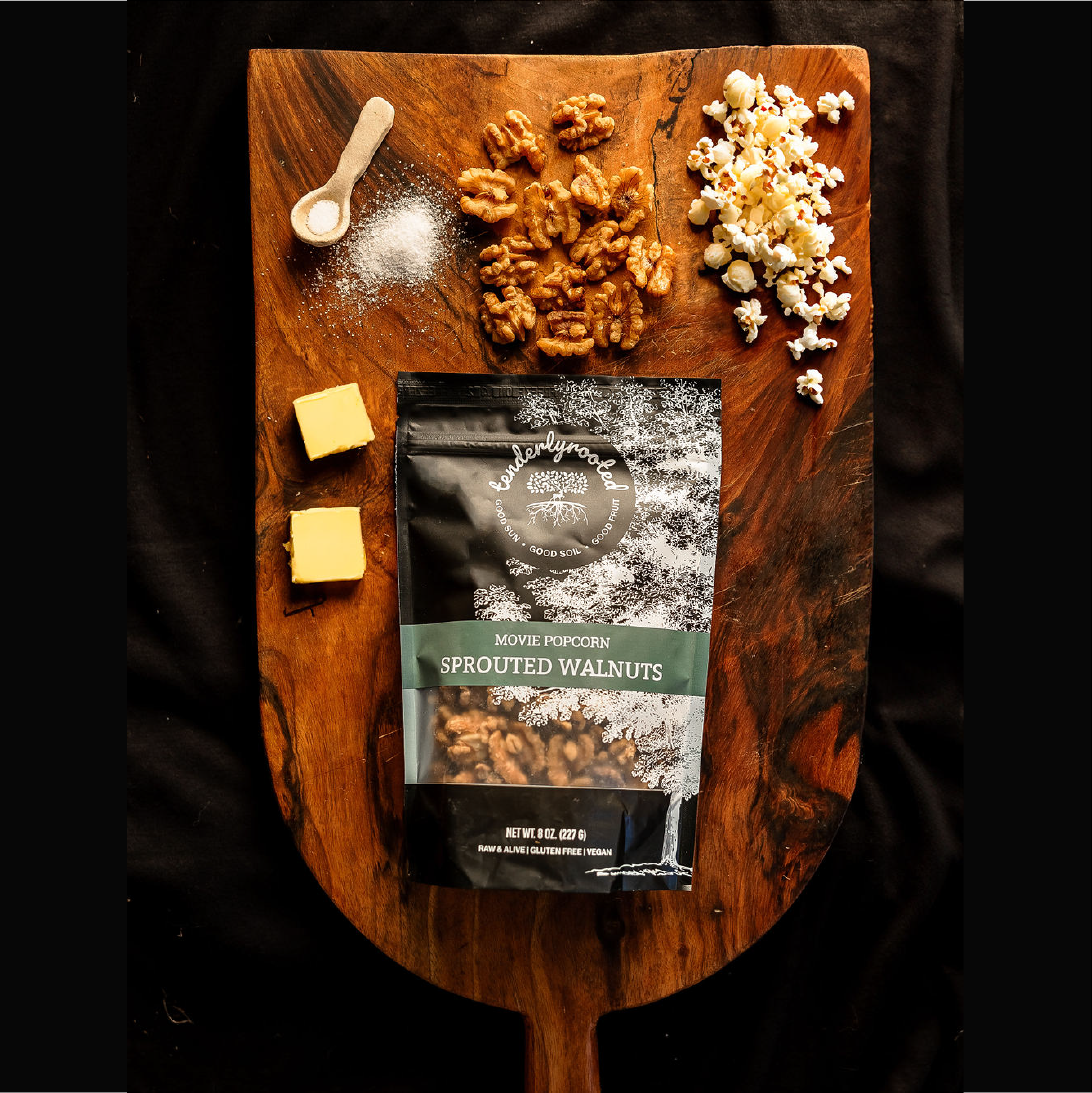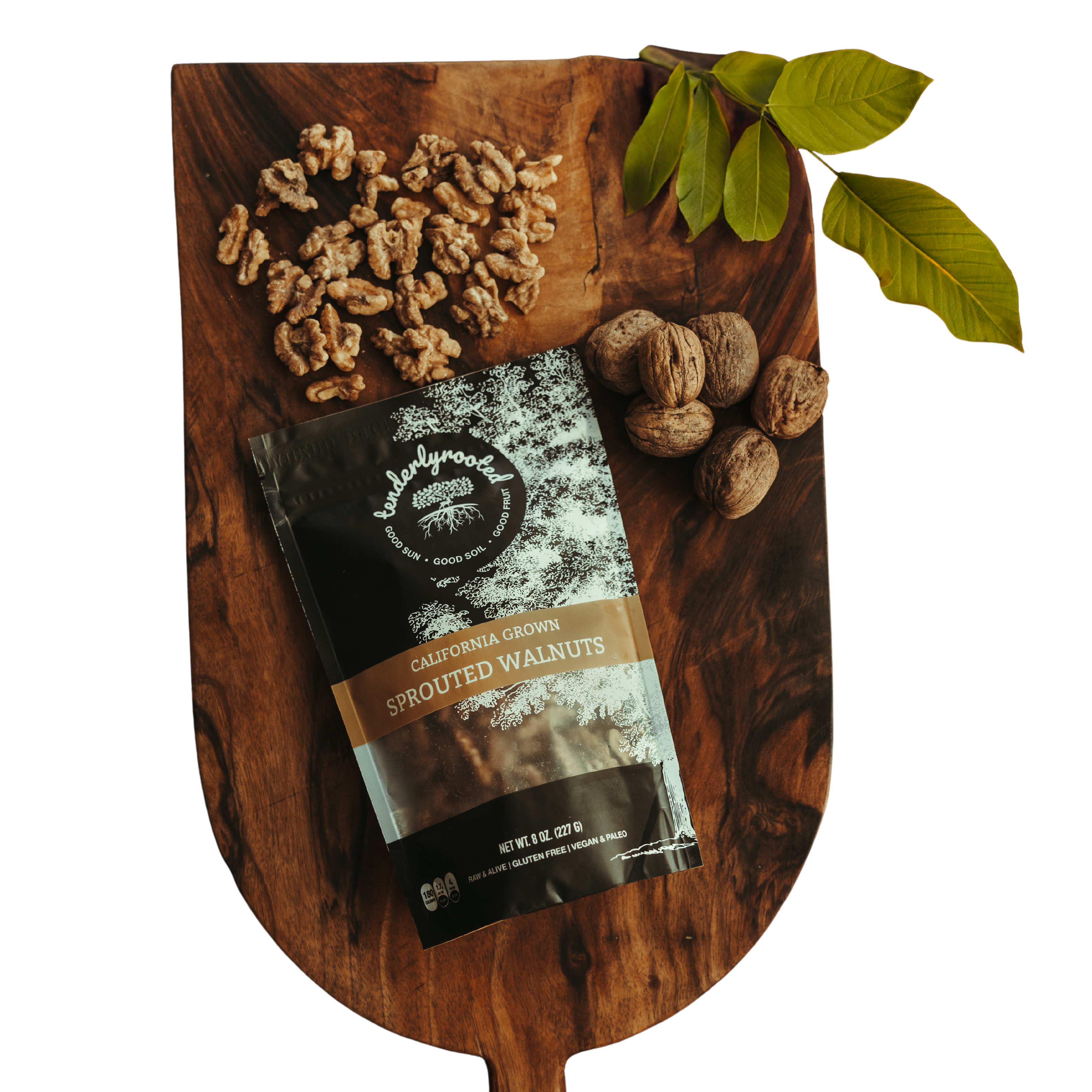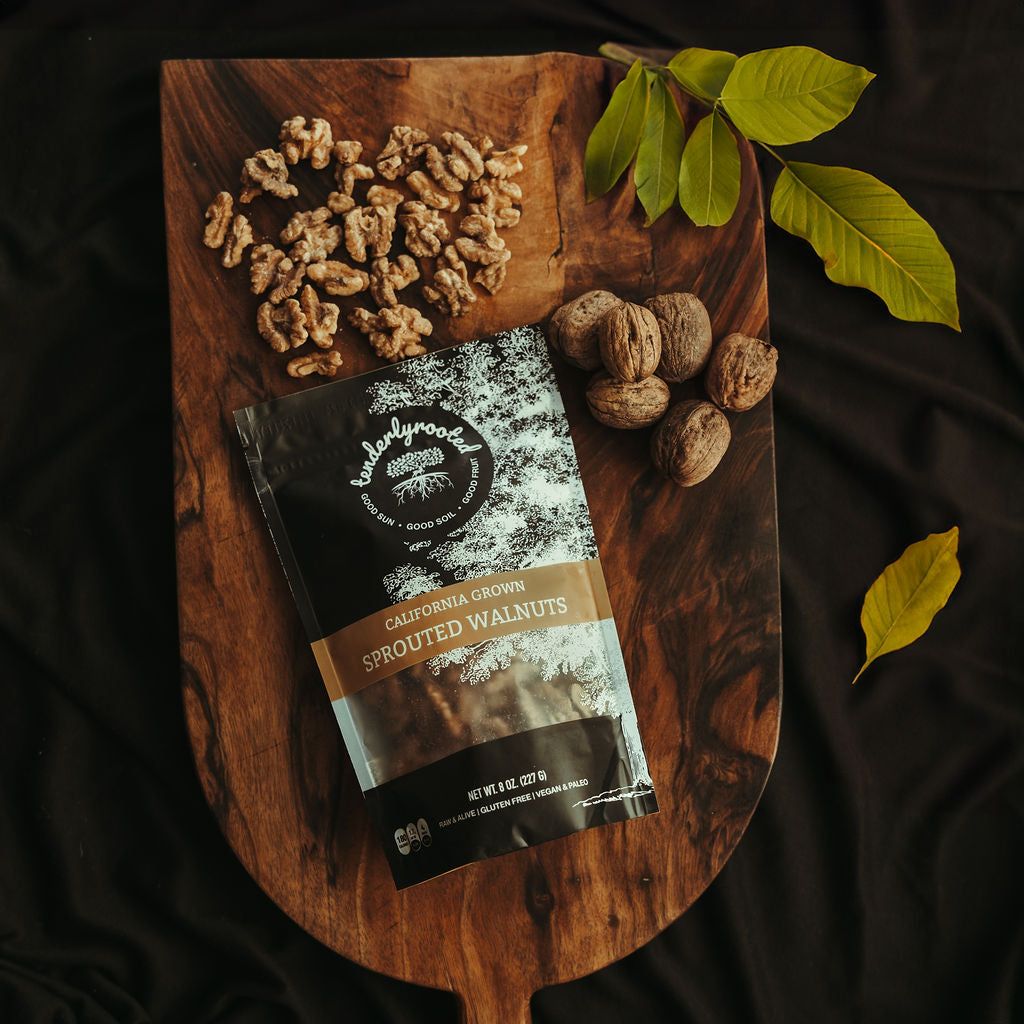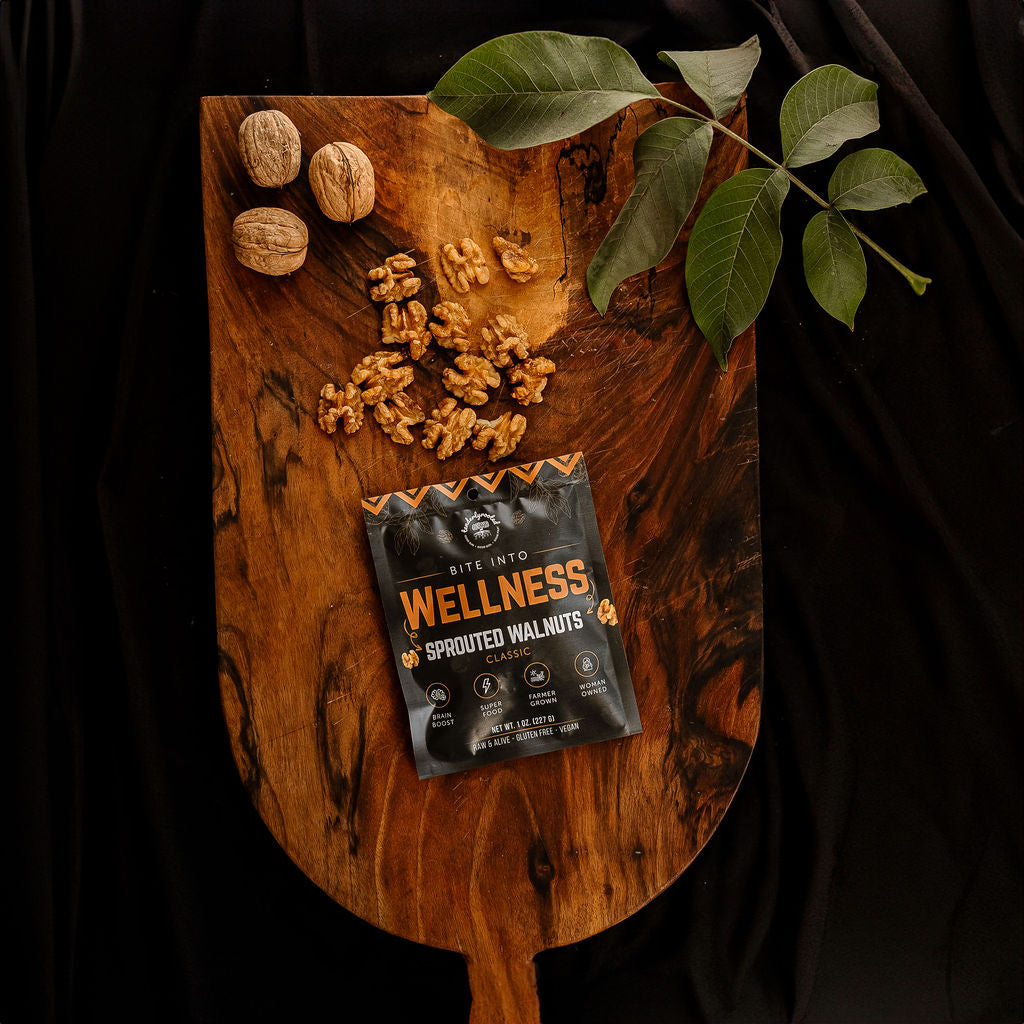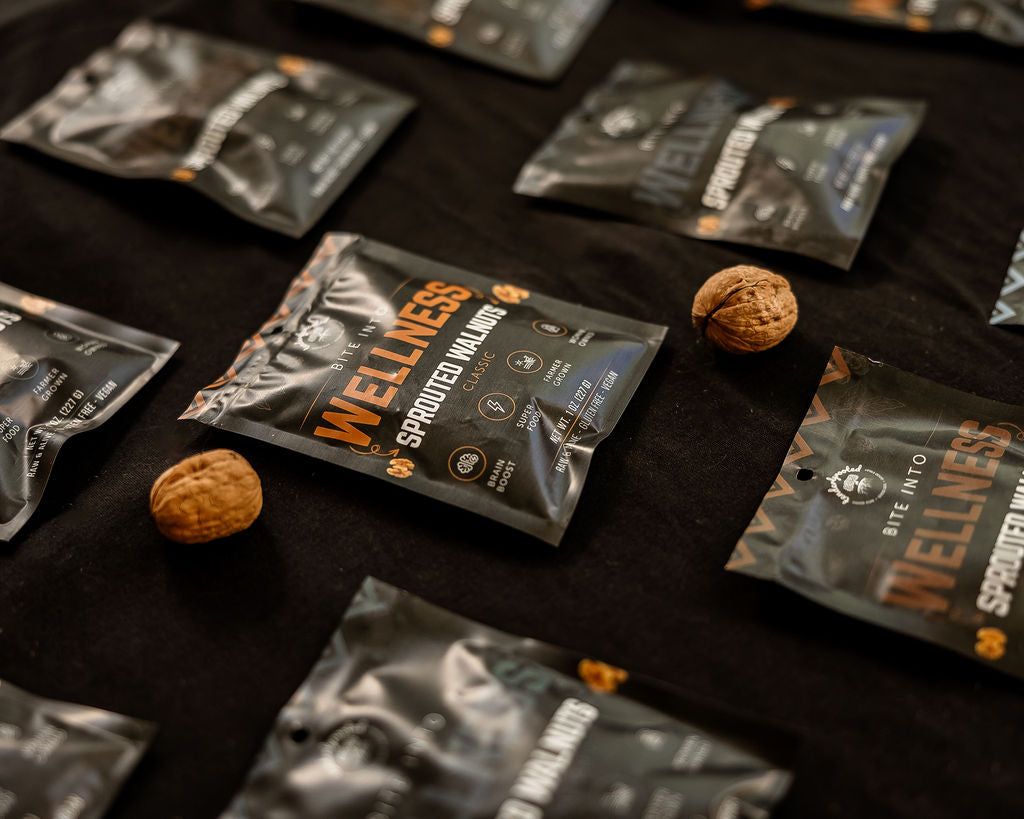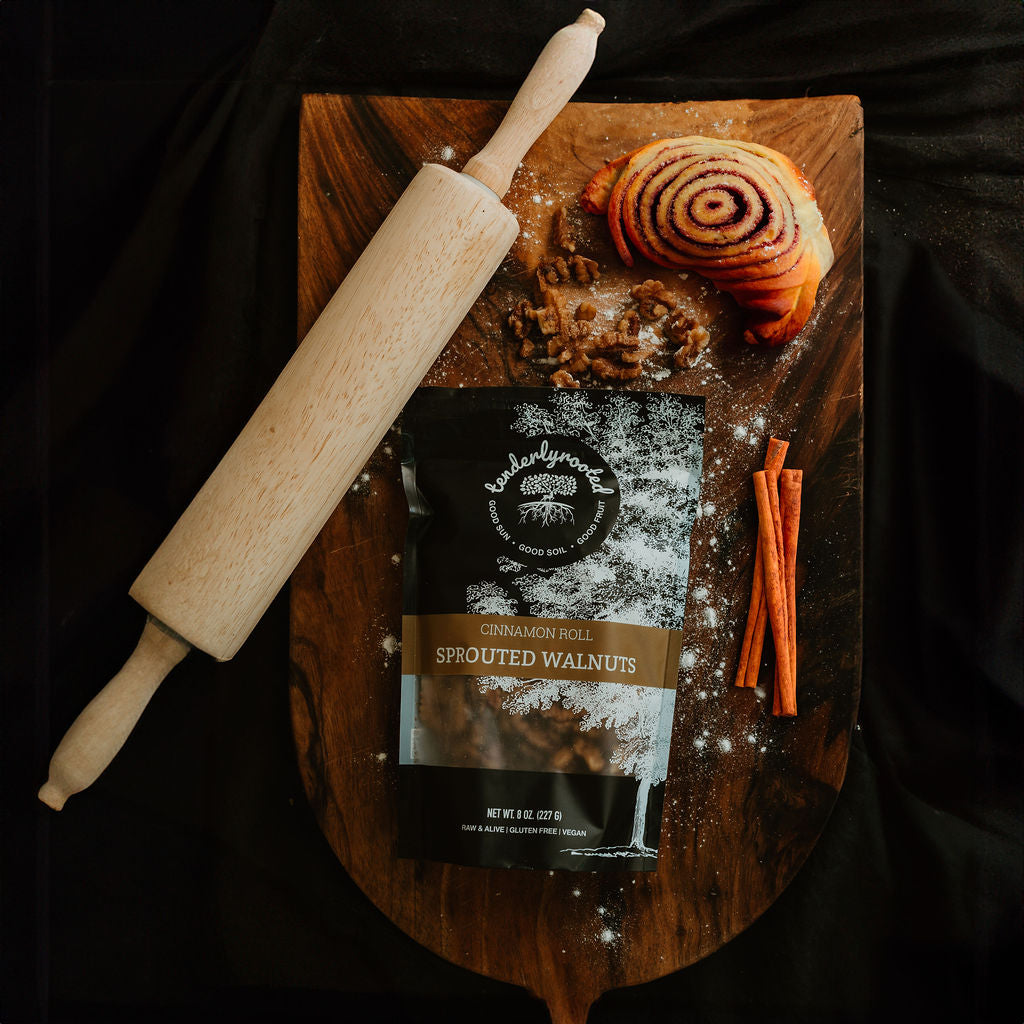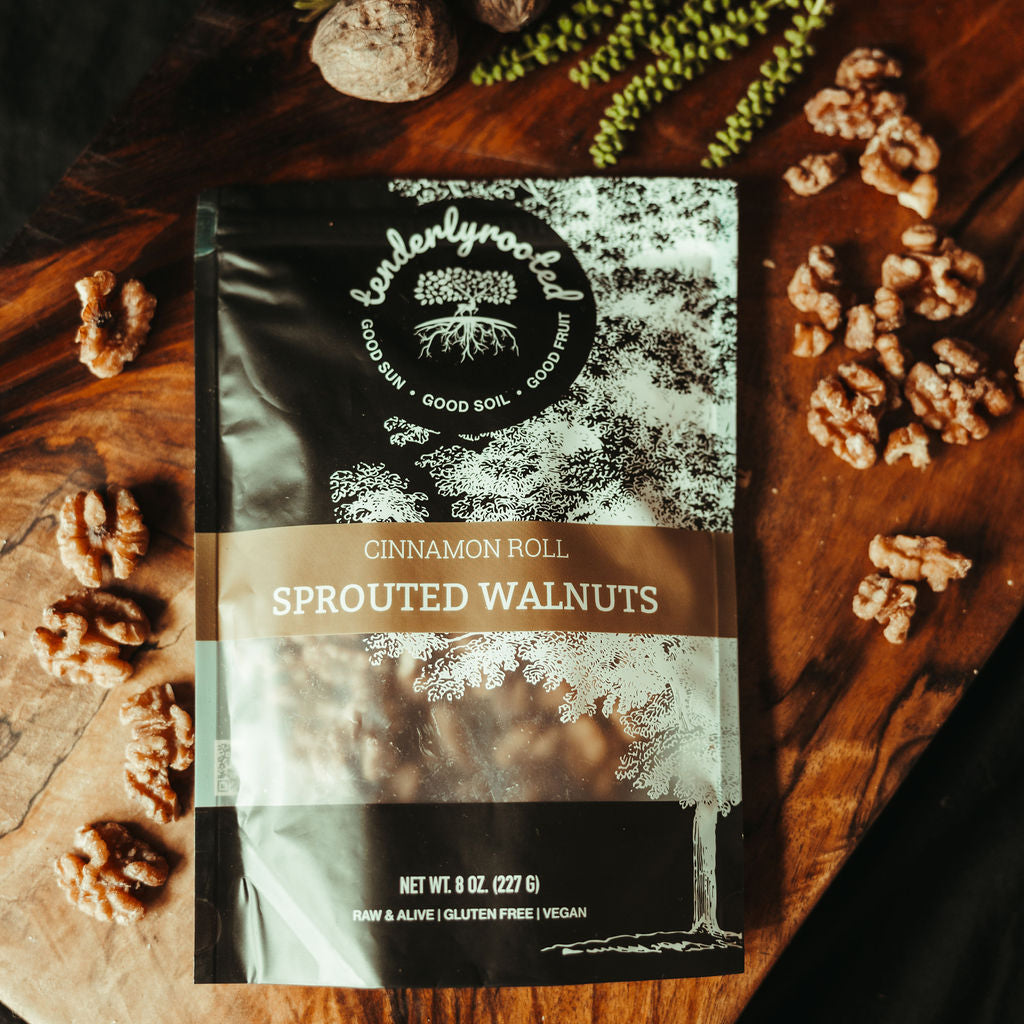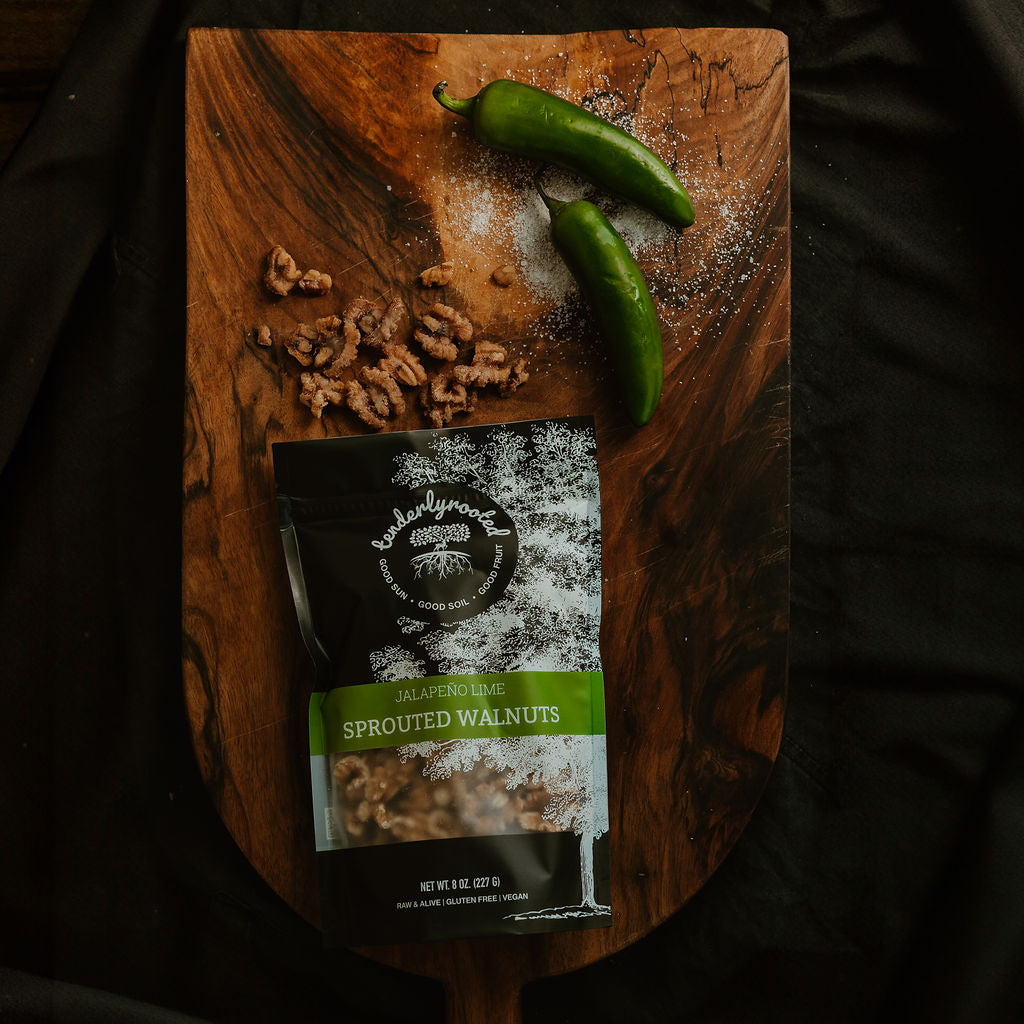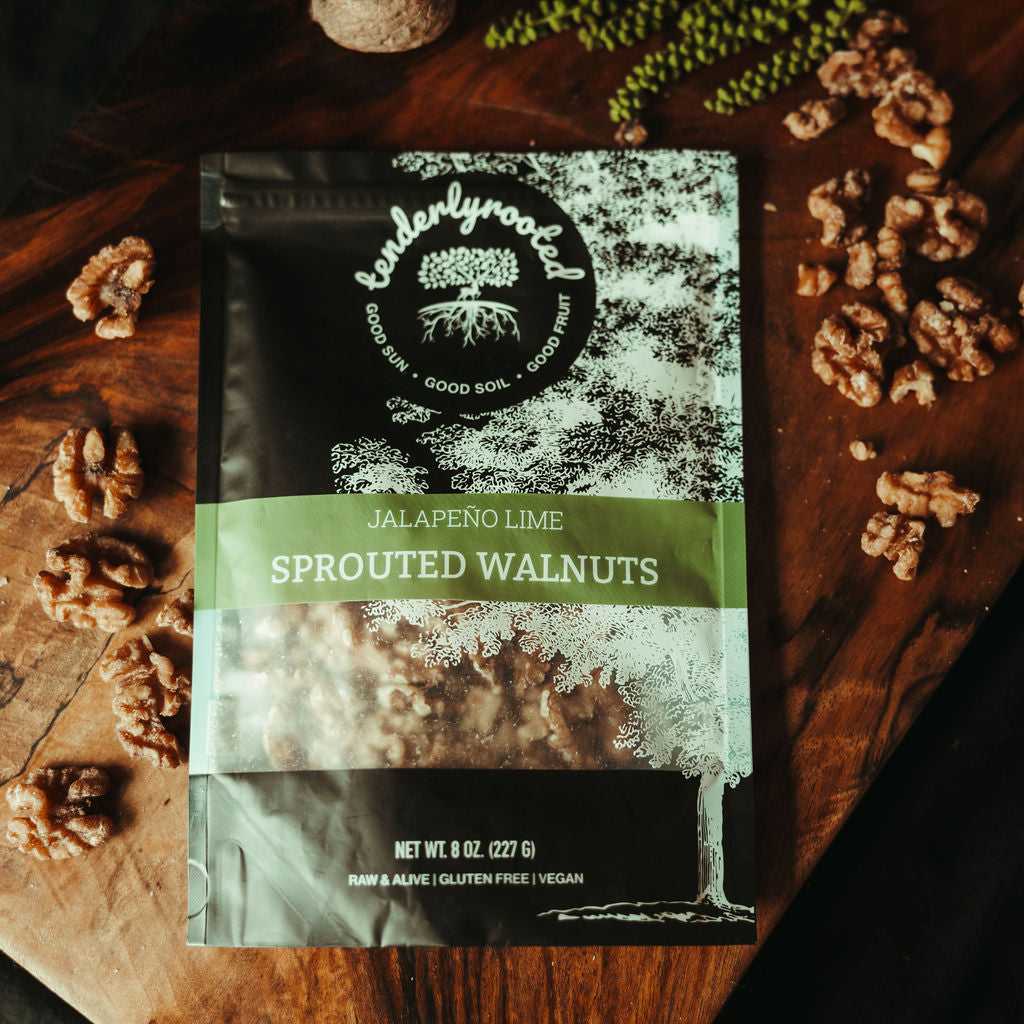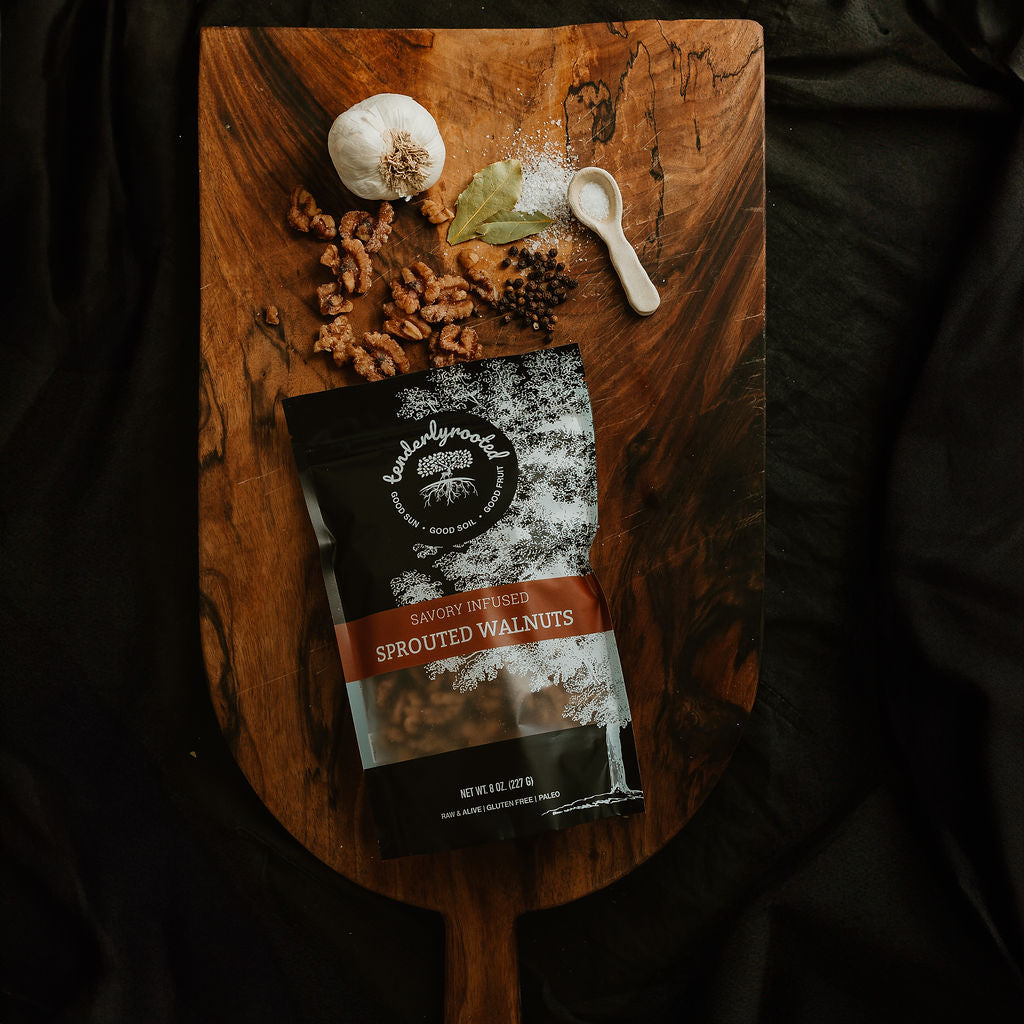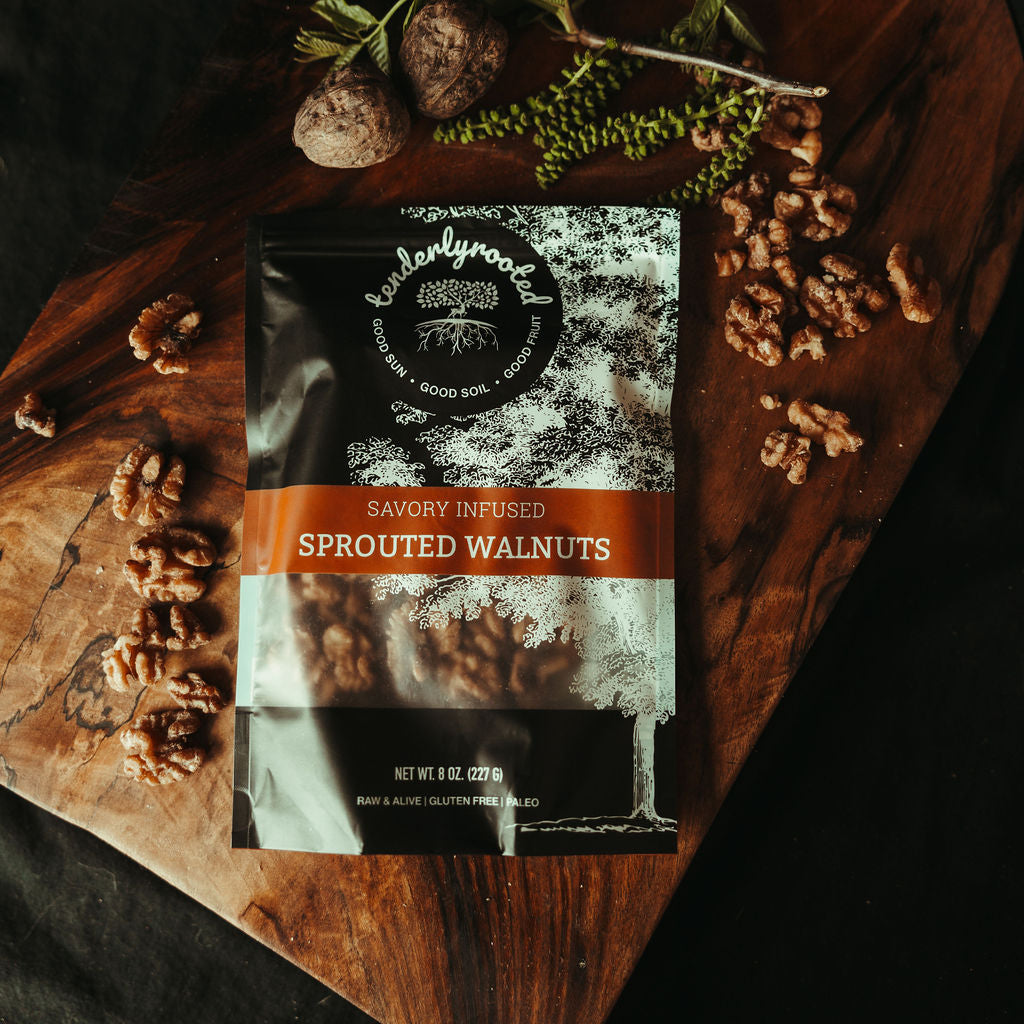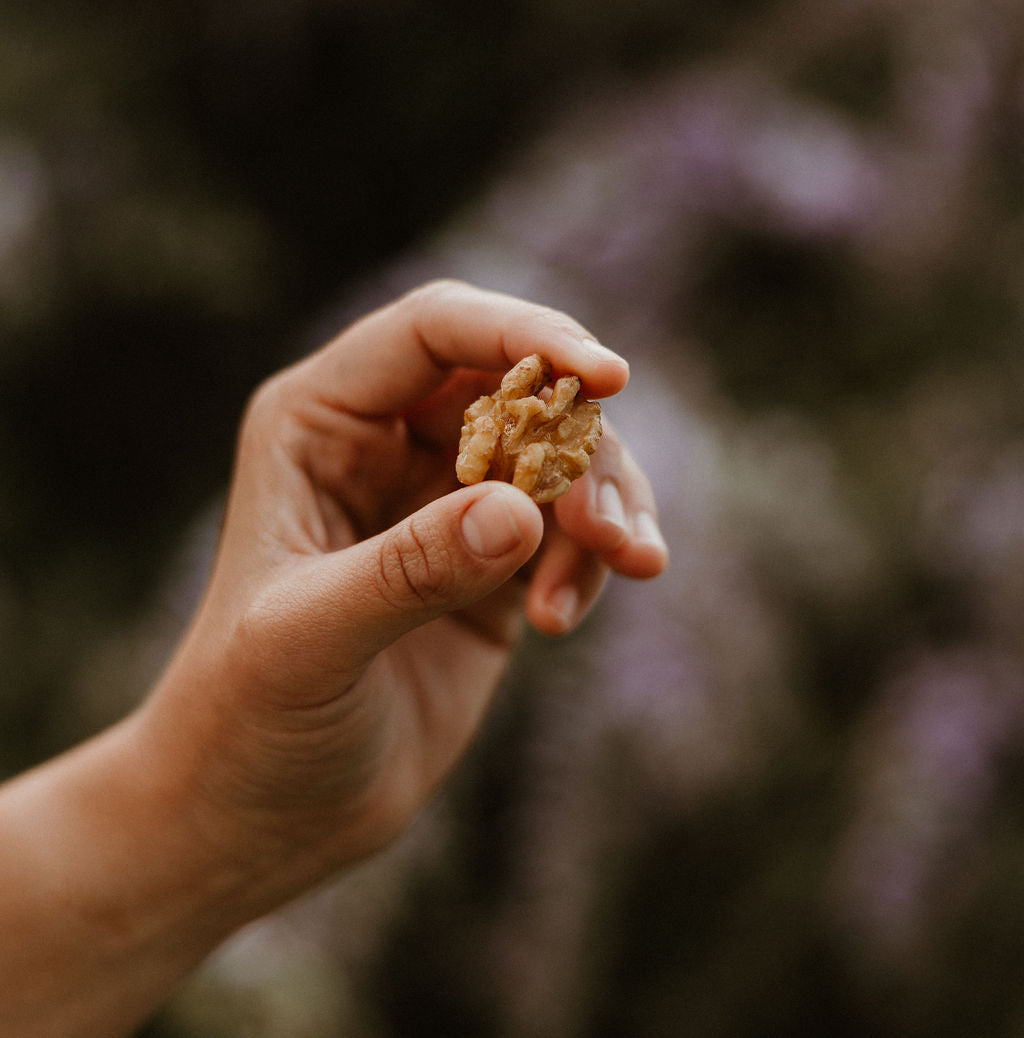Reviews
A small, 60-acre walnut orchard, tucked at the end of a one-lane road, our farm is nothing special to see. Except that it is enormously special to see.
When Kaben's great-grandfather first bought the property in 1947 it was in the swales and shallows of the Feather River's natural floodplain. There was no levee, and so only 9 acres of the then-100-acre parcel could be planted with prunes.
In 1955 the State of California built the levee system and used imminent domain to transform our 100 acre farm into a 60 acre farm. And also, it became a farm that was free of floods and was able to be entirely planted.
The first walnuts on the property were planted in 1957, just two years after the levee project finished, and the same year Kaben's dad was born.
Some of those trees are still on the property today.
Today, the farm is completely planted as walnuts. The Chandler variety represents the majority of our crop, with just a few acres remaining of the classic Hartley variety. That, by the way, is where we get our son's name.
Our farm is well-positioned, as walnut farms go. We have lush loamy river-bottom soil, ideal for walnut trees. Walnuts need lots of moisture, but also a lot of aeration. If the ground stays saturated for too long, the roots begin to rot. The river bottom soil is the perfect mix of frequent high moisture and cycles into drier, more aerated soil.
We are a conventional farm, although we use kinder, gentler farming practices.
Each year we plant a cover crop in the tree rows. This helps fix nitrogen, as well as providing competition for weeds, habitat for insects, and homes for rich microbial colonies to thrive. Combining that with the compost tea we apply to the property, and it creates a positive alchemy of natural health in the soil.
In addition, we have small areas of the farm set aside for hedges, berms, and piles for native birds, rodents, and other larger wildlife to build homes. It is not uncommon to find families of deer in our orchard, or to catch sight of an owl coming home from a night of hunting.
Our farm is a small place, rich in history that stretches back much farther than Kaben's family. Before them, this section of the river was used as migratory hunting ground by brown bears, mountain lions, and the Konkow Maidu people.
In farming today, our goal is to work with the land in such a way that it will be fertile for another 1,000 years more.
Kaben, Jenn, Judah, Eisley, and Hartley.
Kaben is the fourth generation in his family to farm this land along the river. He and Jenn met and married in 2010. Their story is one of a farm boy (who spent his most formative years in East Africa) and a city girl who fell in love. They share an affinity for good food, great board games, and creating pleasurable spaces.
Judah Livingston Otim was born in 2012 and Eisley Jean joined in 2013 (wild, I know). Traveling and ministering around the world was a huge part of our lives until Eisley received a life altering genetic diagnosis. Our world flipped upside down as we lived in and out of world class hospitals. We lived in survival-mode for many years.
In 2018, after enduring a soul crushing year previously, we made a huge choice to reboot our lives with a move to the family farm. We began walnut farming in order to allow Kaben's parents to retire after 40 years of devotion to the land. The farm offered a beautiful reprieve for our hearts, our minds and most of all, Eisley's body.
We invested our nest egg into walnut farming and have been here ever since. While we intended to make a survivable income off the crop, mother nature and the commodity market had a different plan -- thus Tenderlyrooted was born.
Our time among the trees has been most profound. It has offered us the chance to reconsider all the things, to find solace in the bird song, to reflect on who we are and what we believe about the world. It has been the greatest gift. Speaking of actually listening to our hearts desires, Hartley Wilder joined us in November 2022.
We hope that you too find peace in knowing where your food comes from and snacking on the world's greatest walnut.
We started Tenderlyrooted in 2020 as nothing more than a dream during low COVID prices and long COVID shutdowns.
Truth be told, we didn't know if the world was ready for sprouted walnuts. We had several ideas cooking all at once, in an effort to keep the farm afloat.
With finances tight, but our future bright, Kaben made a bold ask of Jenn. Could he have $5,000 of their hard-fought savings to design and order 1,000 high-end bags to see if we could sell sprouted walnuts?
When our influence barely extended past the end of our driveway, ordering 1,000 bags sounded like a huge risk! And it was.
By January 2021 we had the process sorted, the bags here, the website built, and the dream ready for take off. Except for one small problem: we didn't have any customers!
That's right, we made the classic mistake of hope marketing, made infamous in the film, "Field of Dreams". In so many ways, that's all we had.
Undaunted, and unwilling to spend any money on ads (what money?), we hatched a different approach: we would send product to Instagram influencers we adored with a handwritten expressing our gratitude for what they bring into the world. Our note would explain that we wanted to share our love by giving what *we* bring into the world as a thank you.
That was it. That was our whole marketing plan.
And it paid off.
Just a few weeks later, America's favorite government teacher herself, Sharon McMahon, went on her Instagram stories while snacking on our sprouted walnuts and shared how much she enjoyed them. Her sincere and straight-forward manner had already established her as a trusted source of knowledge, and so when she said sprouted walnuts were good, her amazing Governerd community flocked to our fledgling online store!
In 24 hours we had 500 orders! We shut down the website and opened a waitlist. By the end of the weekend, we had 3,000 people on the waitlist!
And with that, Tenderlyrooted was born.
Featured collection
Sprouted Walnuts
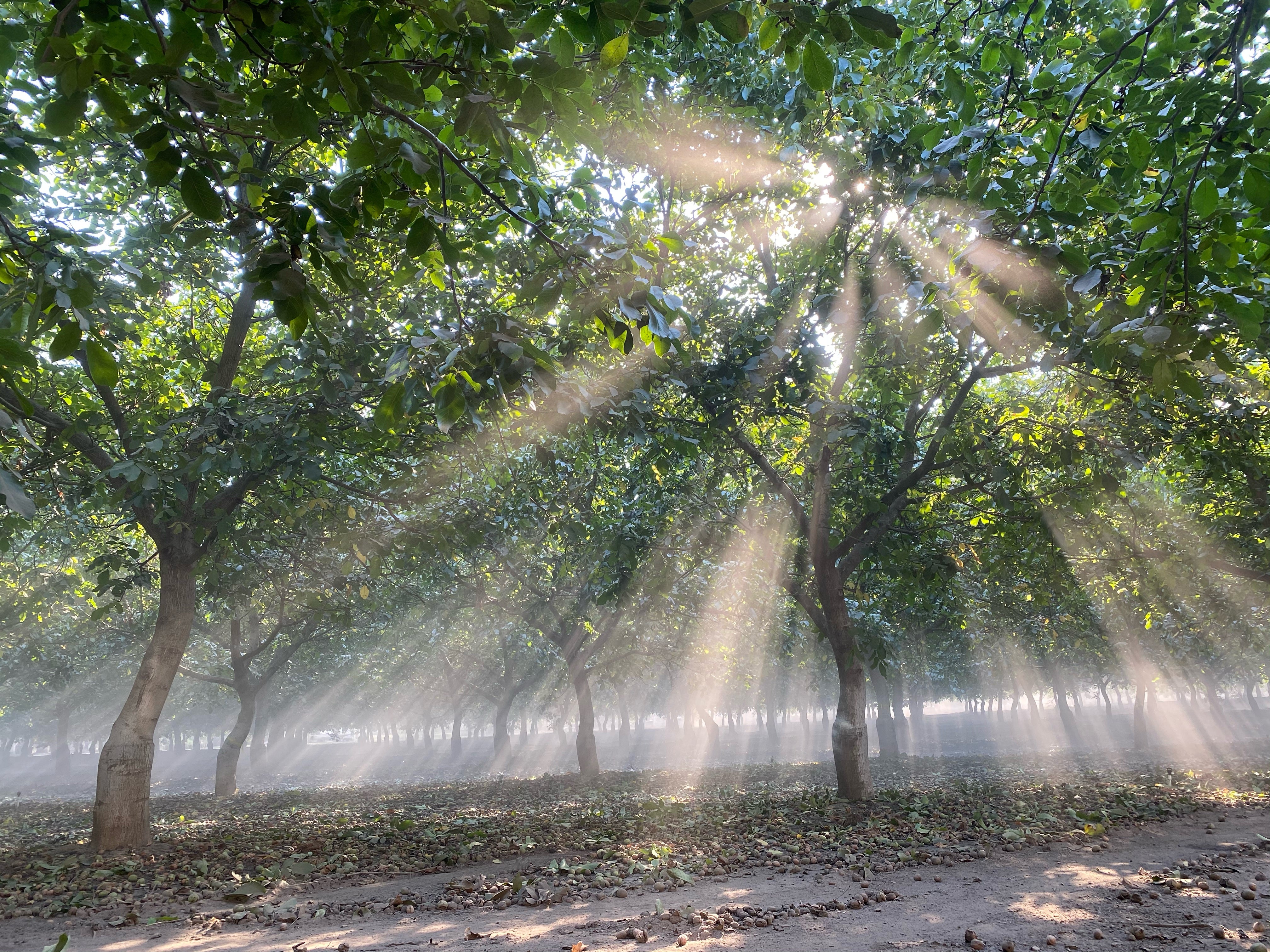
A note from your farmer
Each year, over 1,000,000 farms experience enough losses to consider throwing in the towel. Together, we can change the future of our food system.
Thank you for supporting small farms & business
Discover our products
